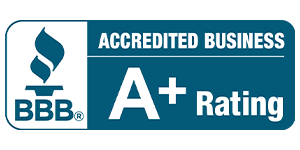5 Trends in Small Business Security Systems
In an increasingly digital and interconnected world, small businesses face a growing array of security challenges. From protecting physical assets to safeguarding sensitive data, the need for robust security systems has never been more critical. Learn about five trends in small business security systems that are shaping the landscape of business security.
1. Integration of Smart Technologies
Small businesses increasingly adopt smart security technologies to enhance their security systems. These systems integrate various devices and sensors, including surveillance cameras, access control systems, and alarm systems, into a single, centralized platform. This integration allows business owners to monitor and manage security in real-time, as well as remotely through mobile apps.
These smart systems offer features like motion detection, facial recognition, and automated alerts, providing a higher level of security and convenience. For example, if an unauthorized entry is detected, the system can instantly send alerts to the business owner's smartphone or notify a security monitoring service.
2. Cloud-Based Security Solutions
Cloud-based security solutions have gained popularity among small businesses. These systems store security data, such as video footage and access logs, in the cloud rather than on local servers. This trend offers several advantages, including:
- Scalability: Small businesses can easily scale their security systems up or down as needed without significant hardware investments.
- Remote Accessibility: Authorized personnel can access security data from anywhere with an internet connection, improving monitoring and response capabilities.
- Automatic Updates: Cloud-based systems receive regular updates and maintenance, reducing the burden on small business owners to manage their security infrastructure.
Additionally, cloud-based solutions often come with subscription models that can be more cost-effective than traditional, upfront capital investments in security hardware.
3. Artificial Intelligence (AI) and Machine Learning
Artificial intelligence and machine learning technologies are revolutionizing small business security systems. These technologies can analyze large datasets to identify patterns and anomalies, enhancing security in several ways:
- Predictive Analytics: AI can predict security threats by analyzing historical data, allowing for proactive security measures.
- Behavior Analysis: Machine learning algorithms can detect unusual behavior, such as unauthorized access or suspicious activity, and trigger alerts.
- Automation: AI-driven systems can automate responses to certain security events, such as locking down access or initiating emergency protocols.
AI and machine learning make small business security systems smarter, more responsive, and better equipped to adapt to evolving threats.
4. Access Control Systems With Biometrics
Access control systems have become more sophisticated, particularly through biometric technologies. Biometrics, such as fingerprint scanning, facial recognition, and iris scanning, provide a higher level of security and convenience compared to traditional access methods like keycards or PINs.
Small businesses adopt biometric access control systems to restrict entry to authorized personnel only. These systems not only enhance security but also reduce the risk of unauthorized access due to lost or stolen access cards or forgotten PINs.
5. Cybersecurity Integration
The convergence of physical security and cybersecurity is a growing trend in small business security systems. As businesses increasingly rely on digital technologies and data storage, the importance of protecting both physical assets and digital information becomes paramount.
Integrated security systems are now designed to address both physical and digital threats. This means that in addition to monitoring physical access and surveillance, these systems include features like network security, firewall protection, and intrusion detection for digital assets.
For example, if a cybersecurity breach occurs, the integrated system can trigger physical security measures like locking down the premises or activating alarms. Likewise, unauthorized physical access can result in immediate cybersecurity actions, such as disabling network access.
Small business security systems are evolving to meet the growing challenges of the modern world. Embracing these trends can help small business owners create safer and more secure environments for their operations. If you are interested in adding additional security to your small business, contact DFW Security. We're committed to making state-of-the-art technology affordable, and our expert technicians would be happy to help you choose the security you need to keep your business safe.









